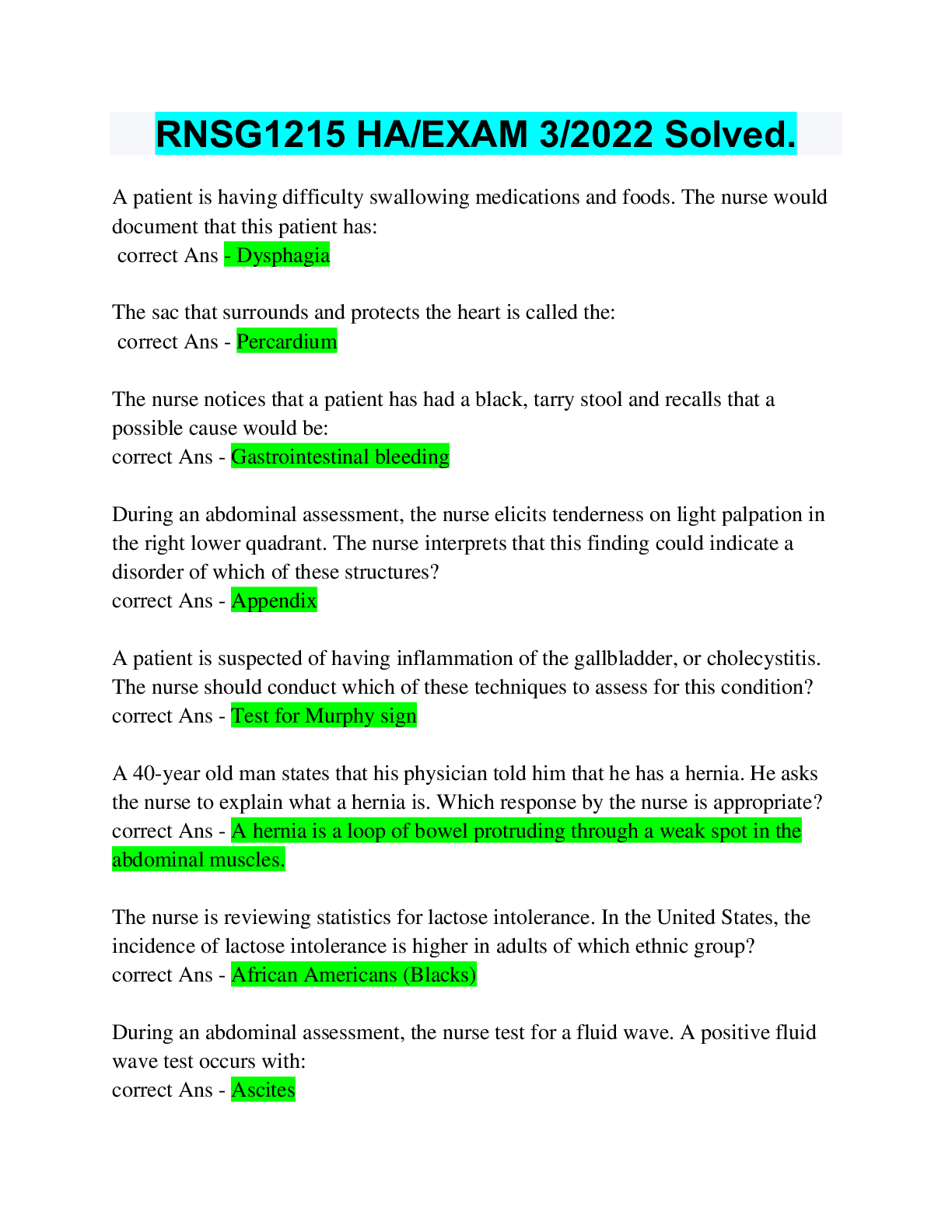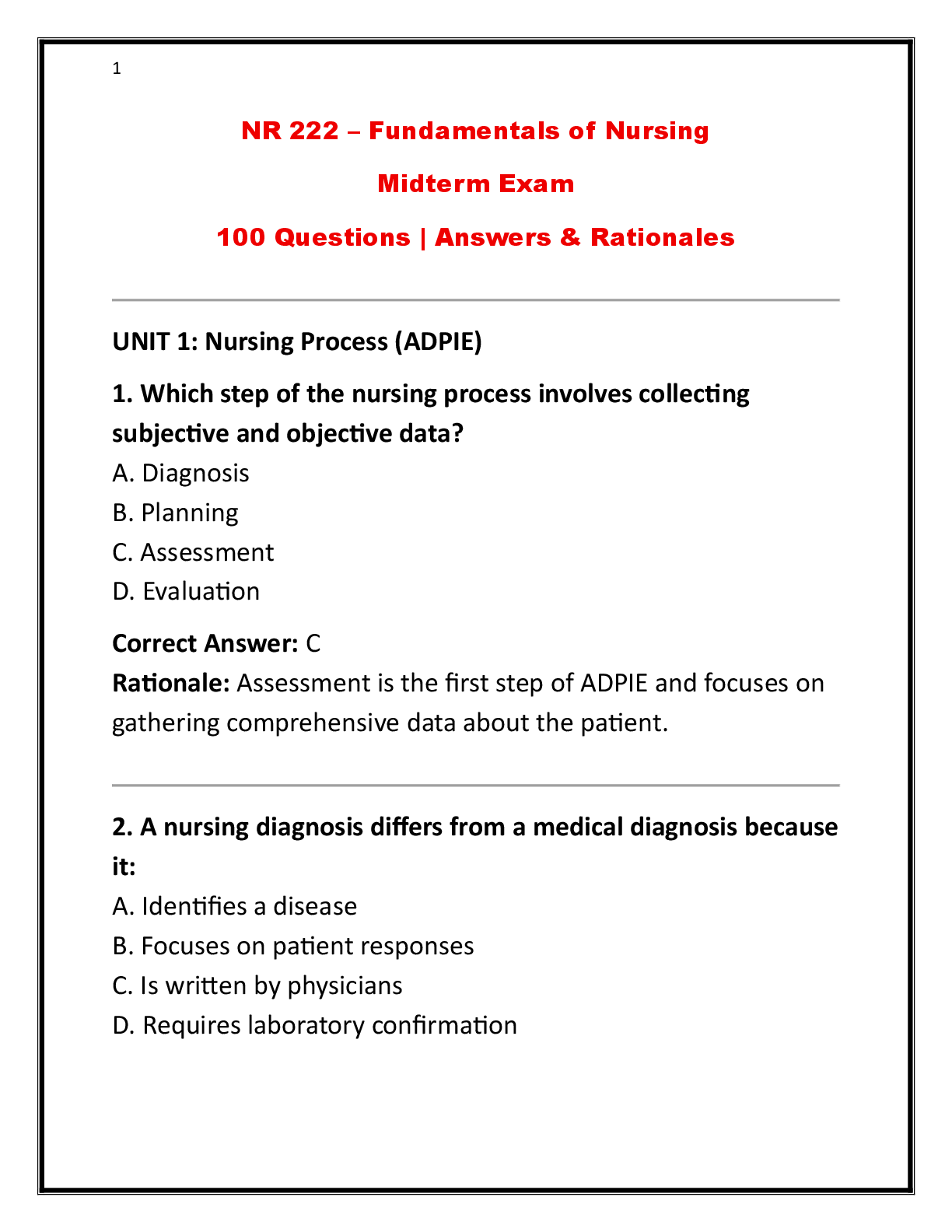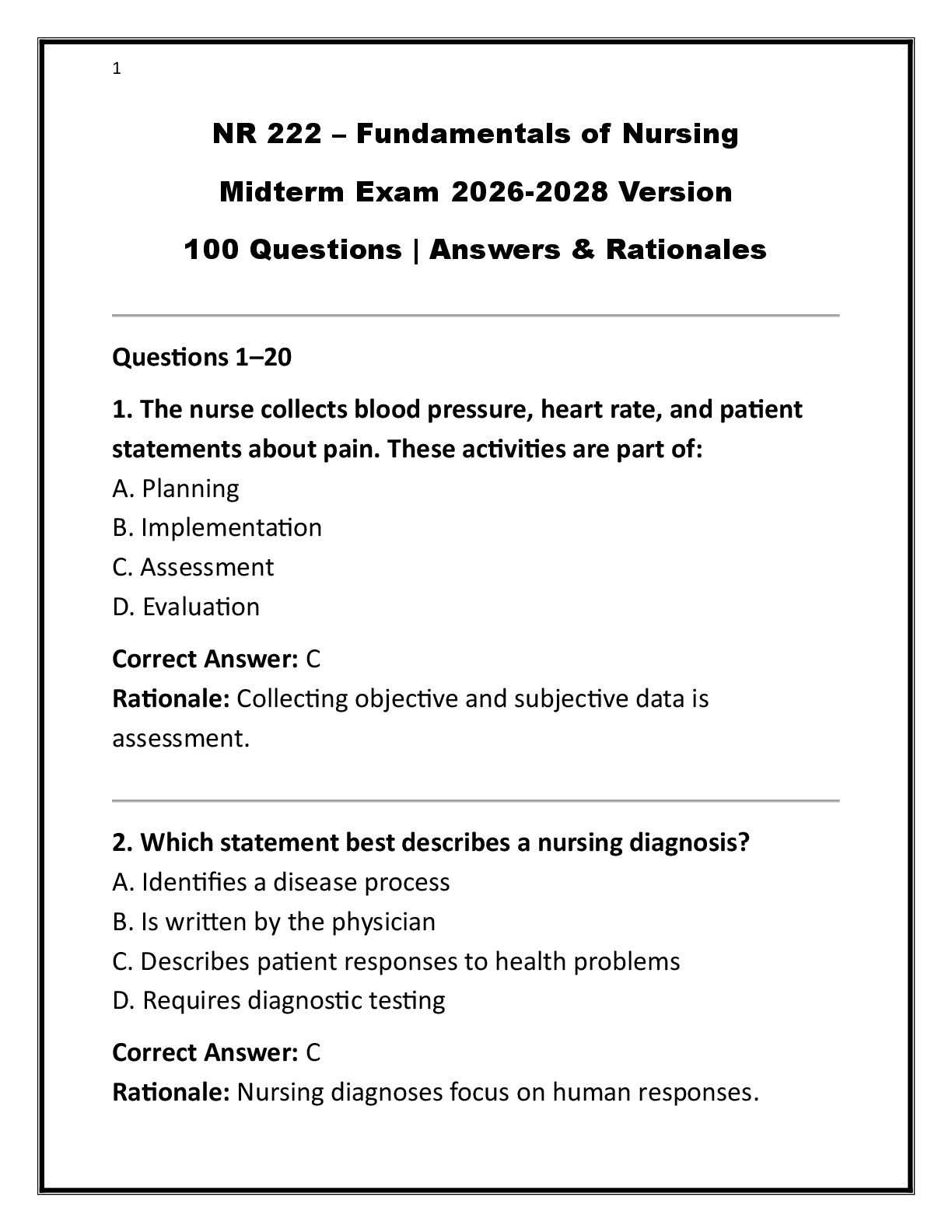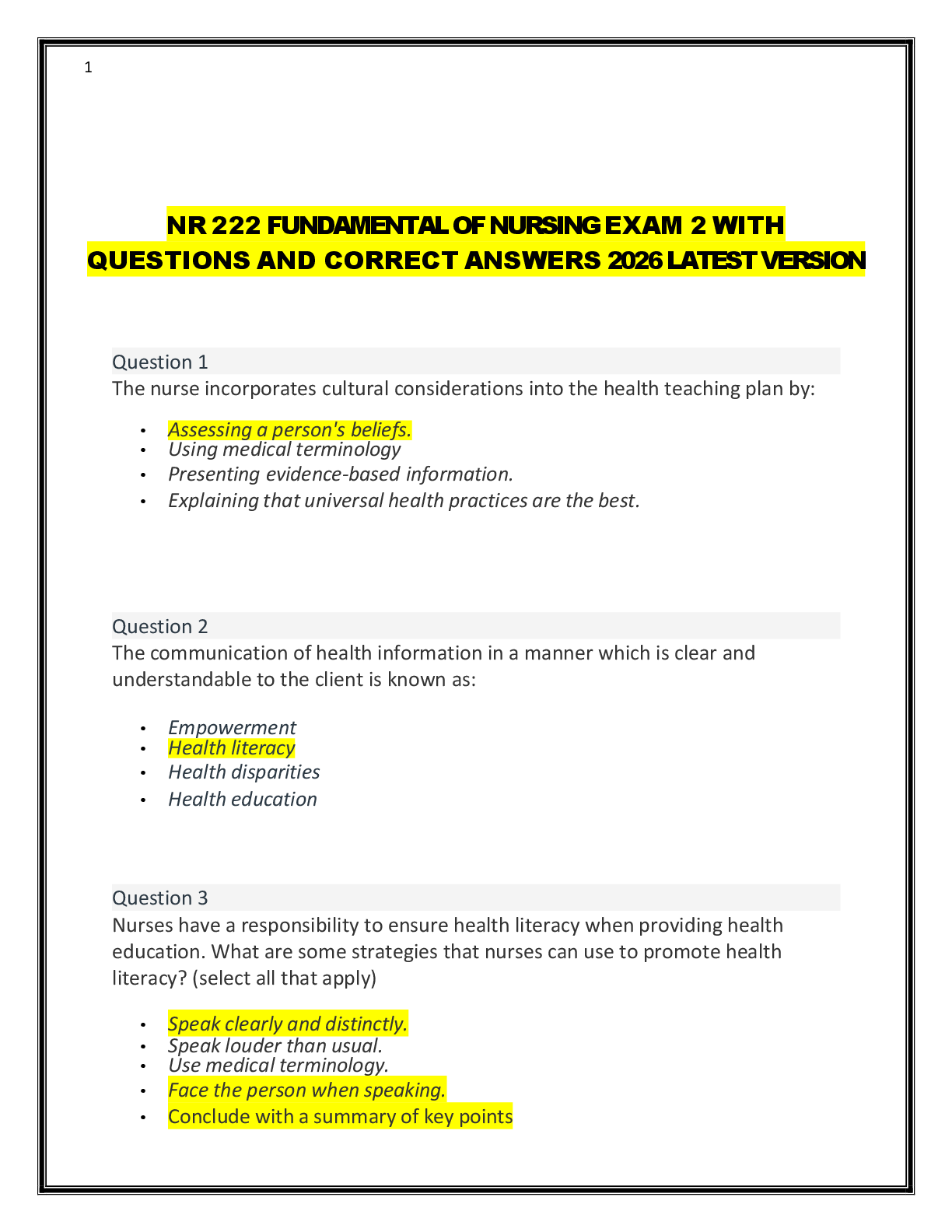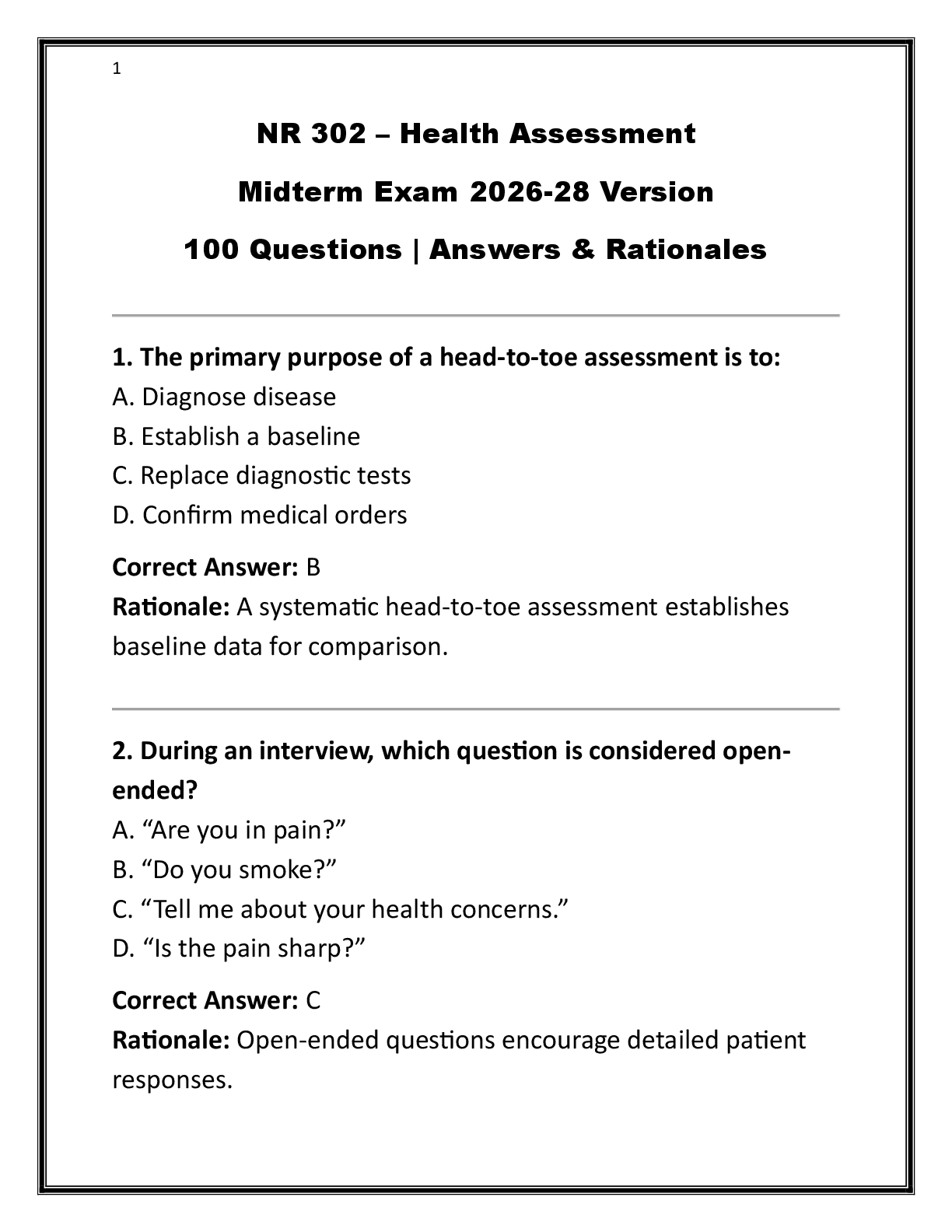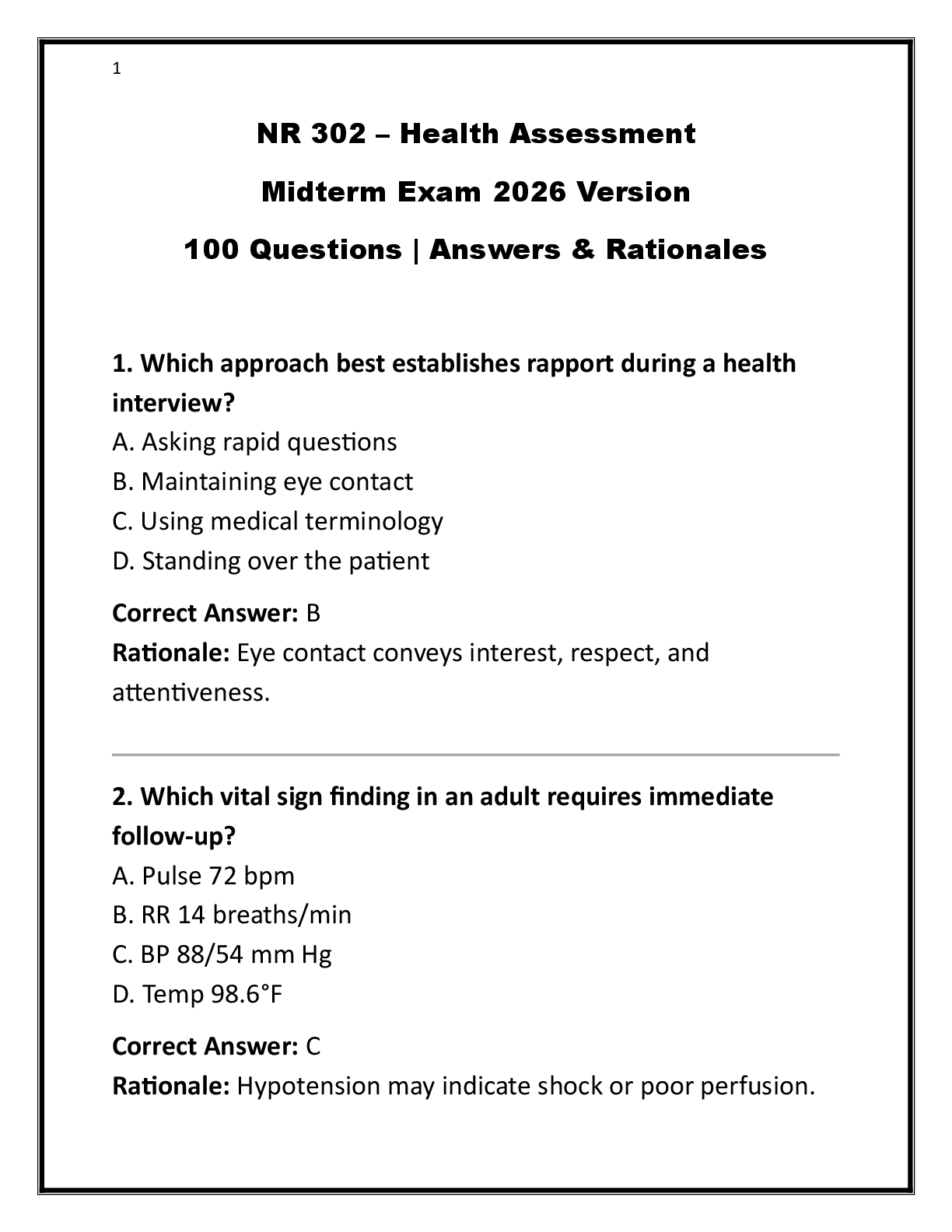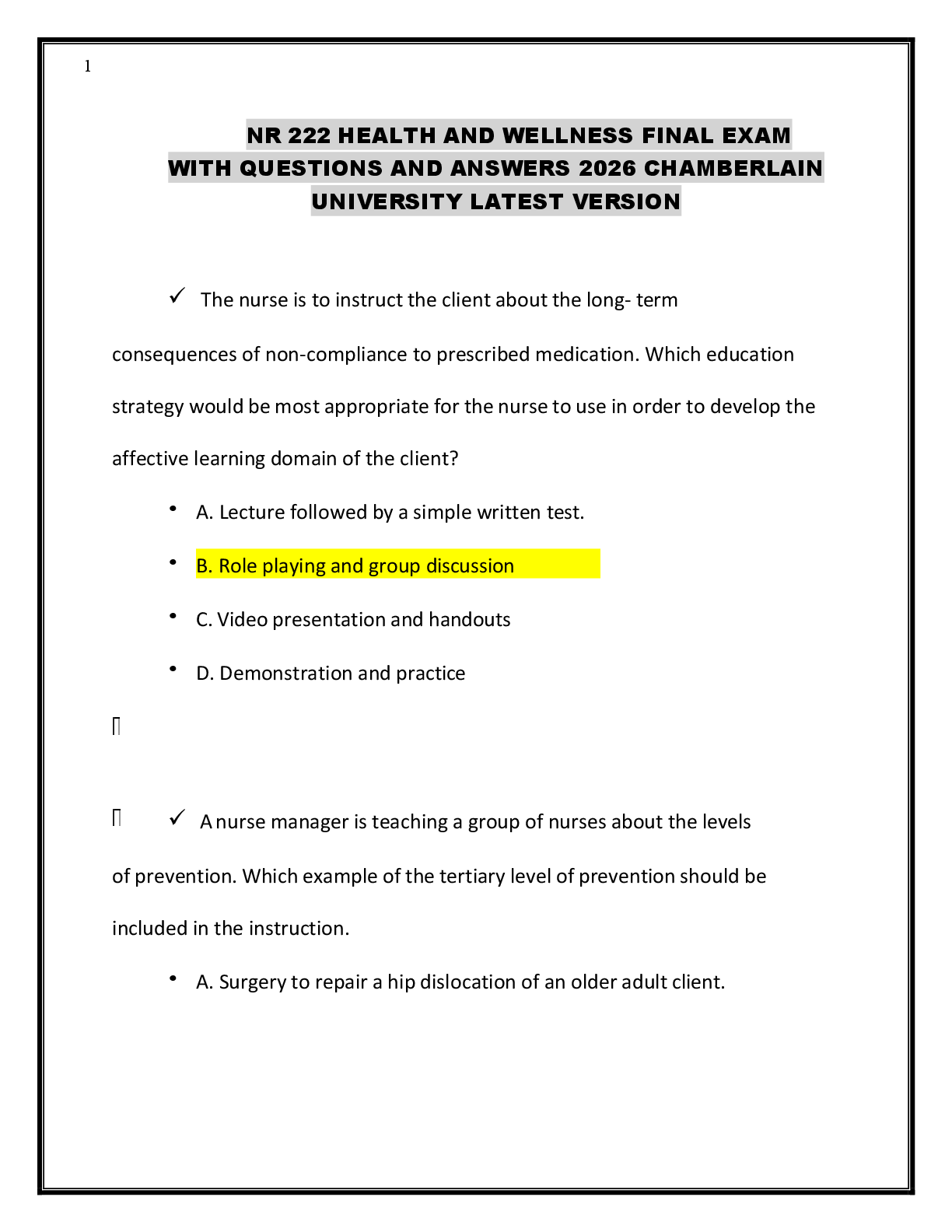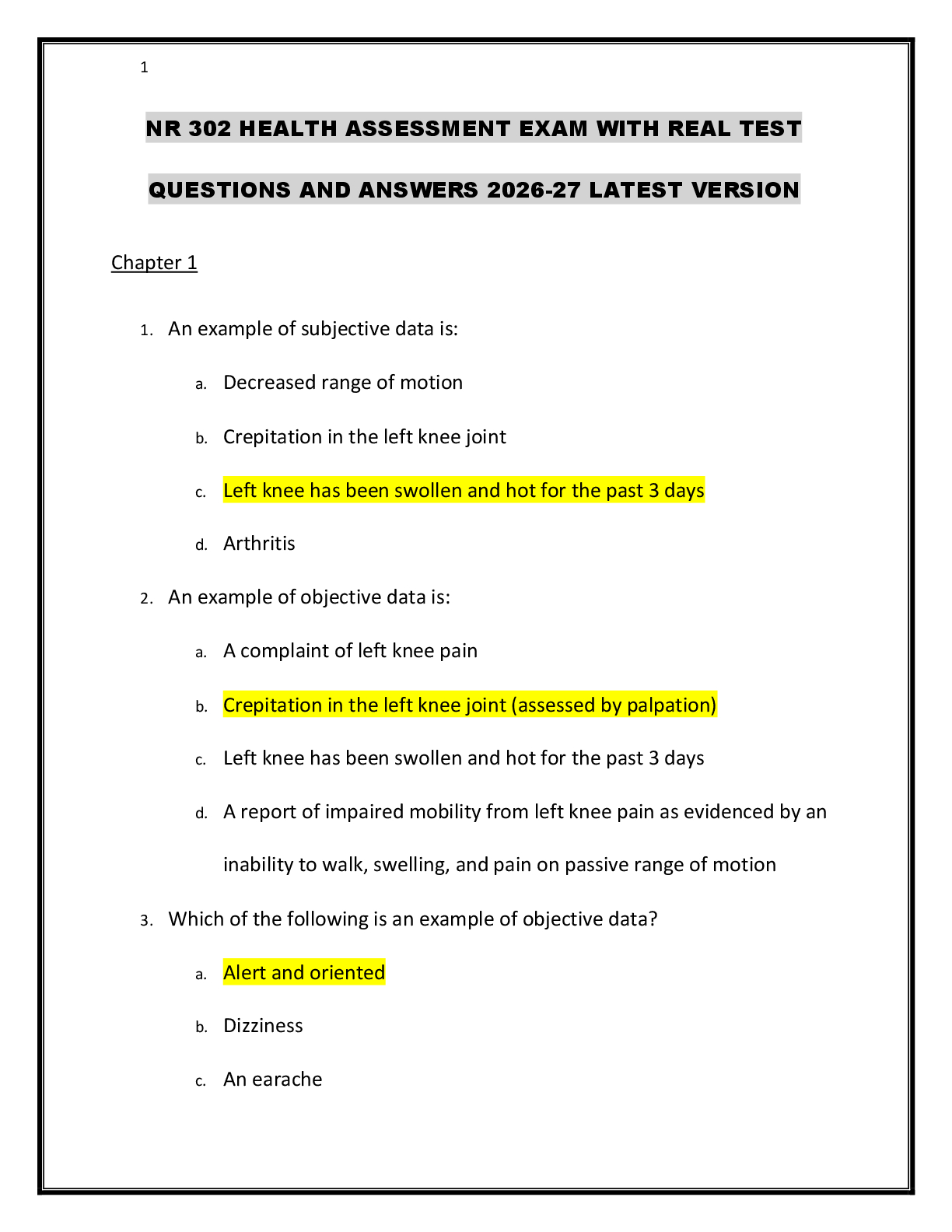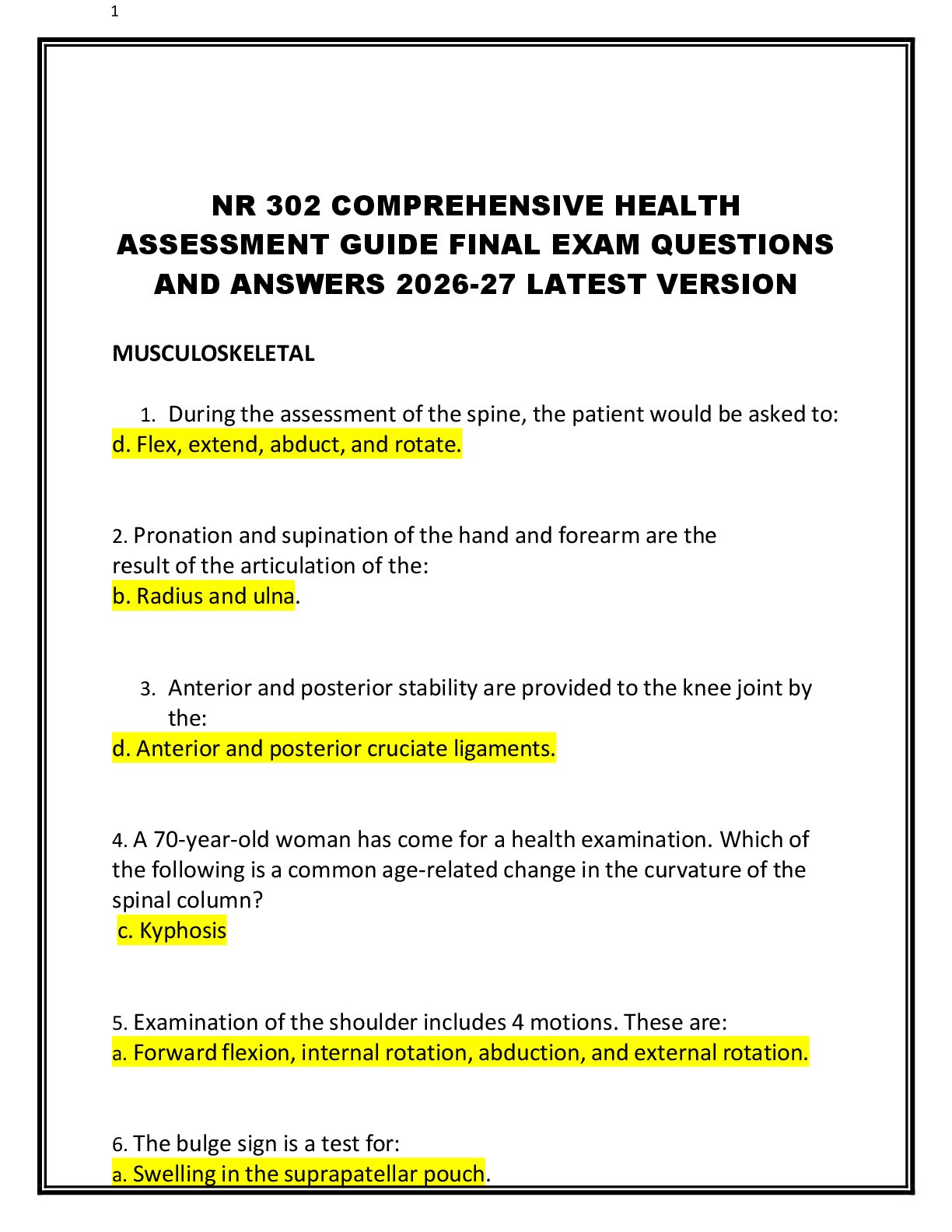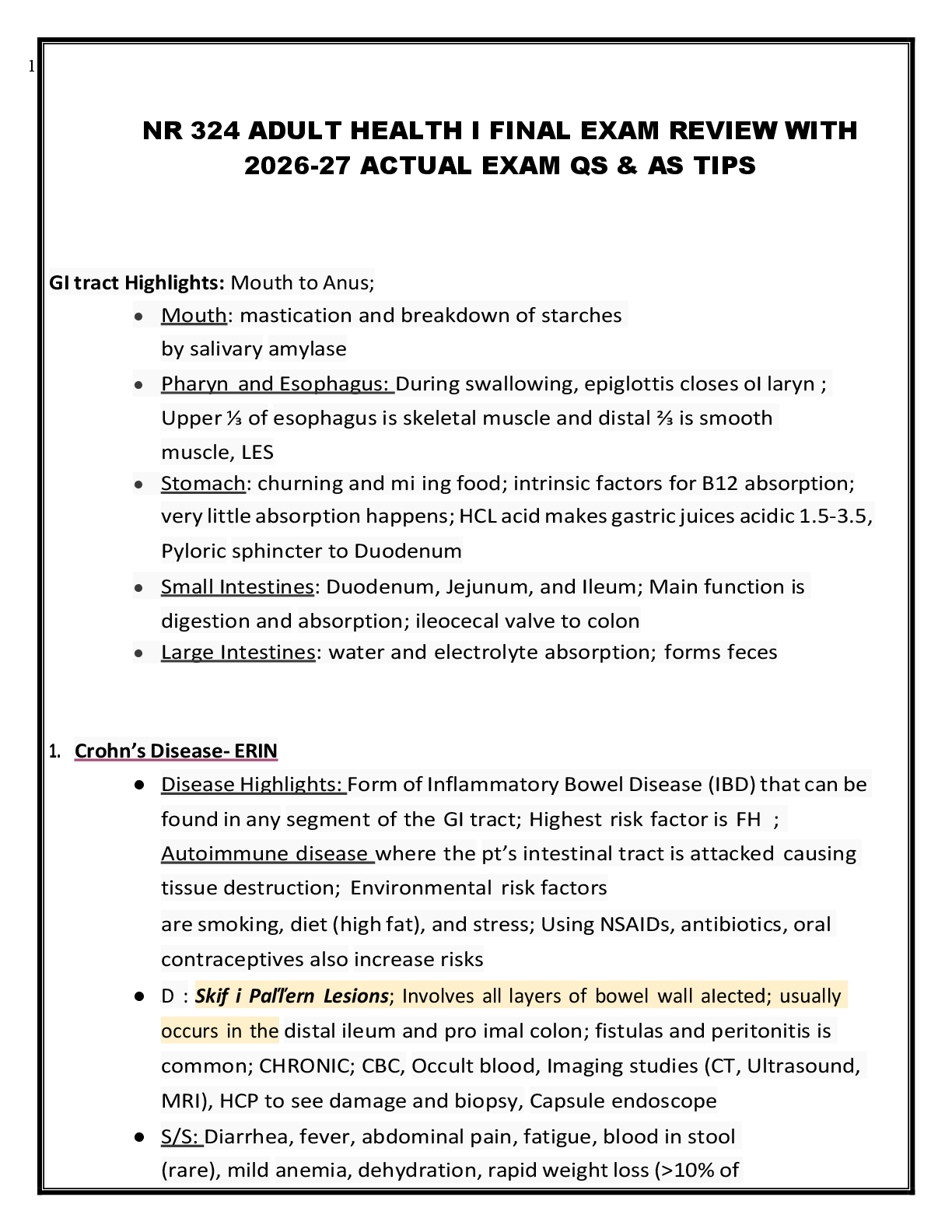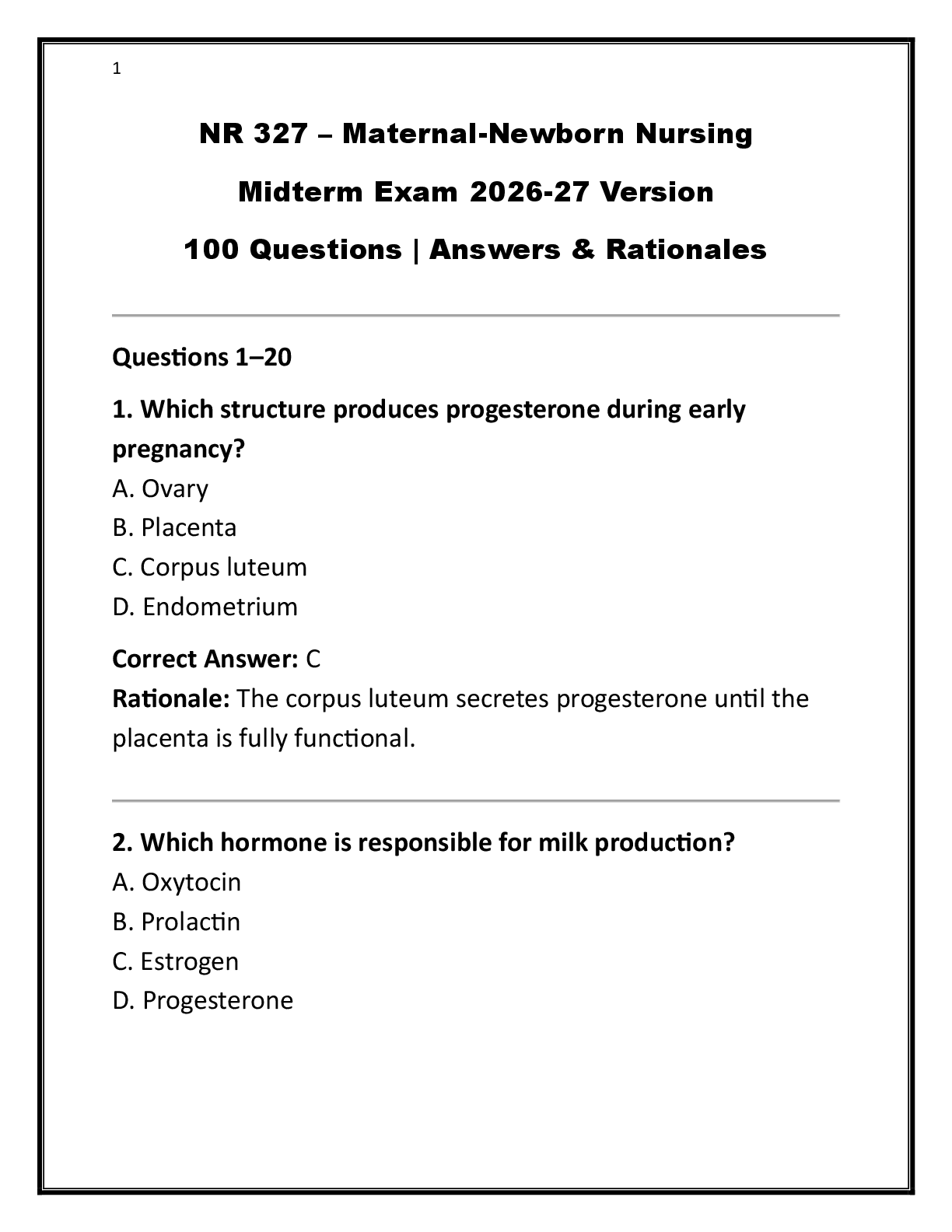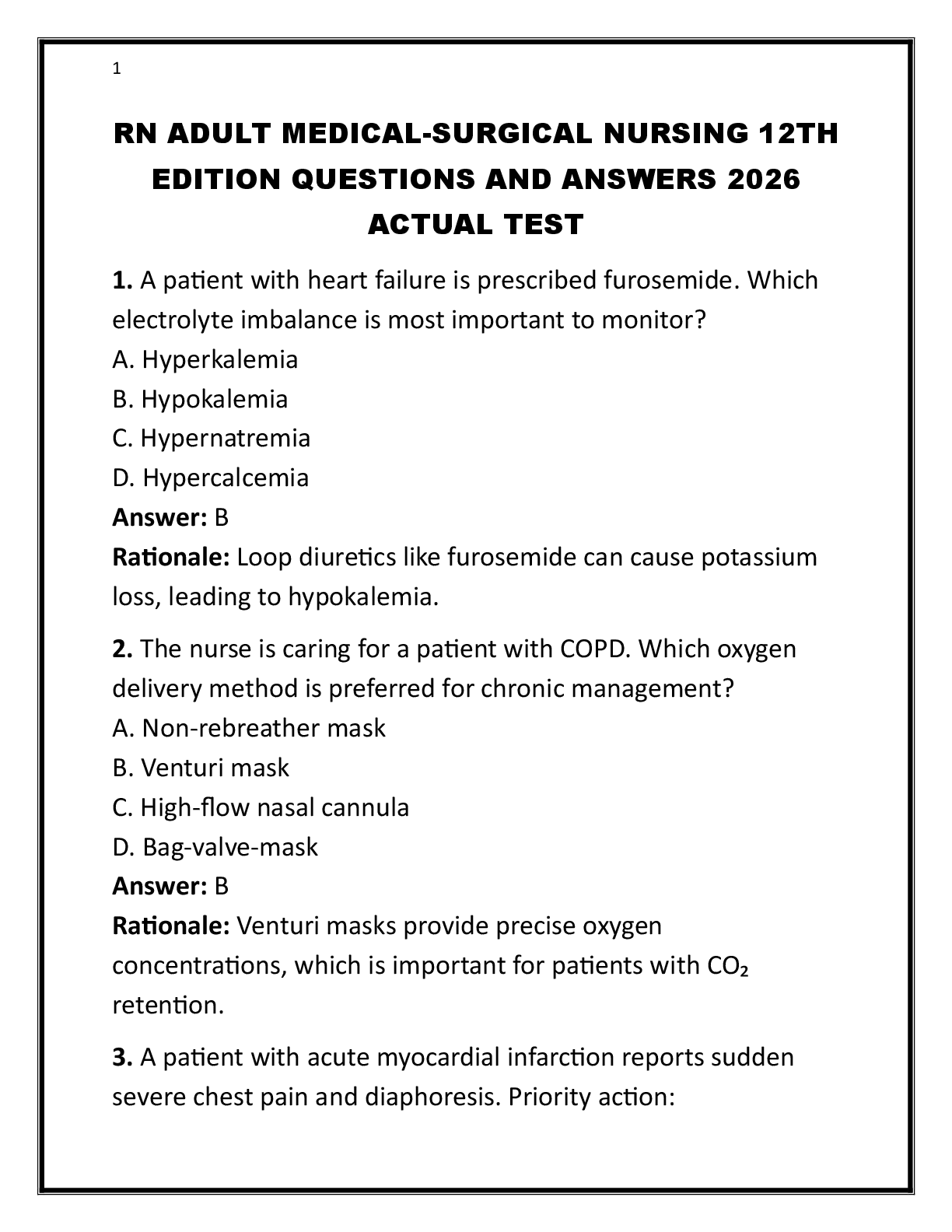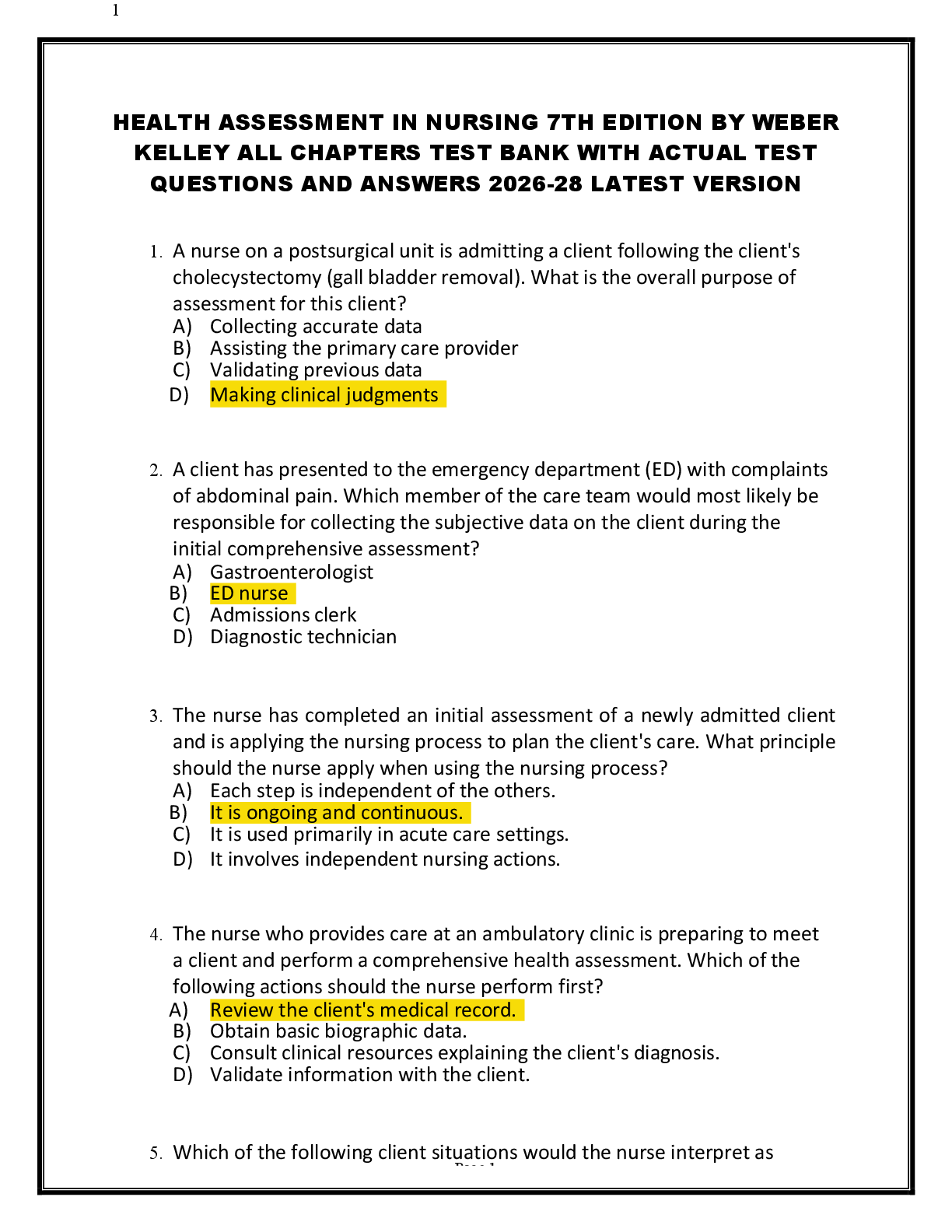TNCC Final Exam Test 2022 - BEST STUDY GUIDE GRADED A+
Primary concern when a person cannot stop coughing/clearing their throat following house fire/smoke?
Correct Answer: Airway/Intubate
Lab evidence of cellular perf
...
TNCC Final Exam Test 2022 - BEST STUDY GUIDE GRADED A+
Primary concern when a person cannot stop coughing/clearing their throat following house fire/smoke?
Correct Answer: Airway/Intubate
Lab evidence of cellular perfusion Correct Answer: Base Excess (Less than -6 is BAD)
Multiple people are in the ER of different ages who all go to the same church. They all have the same
symptoms. What is the most likely cause? Correct Answer: Biologic
Suspected shock type with a spinal cord injury Correct Answer: Distributive Shock (Includes neurogenic)
Patient has GCS of 3, unequal pupils (one sluggish, one blown), and is posturing. What is the cause?
Correct Answer: Herniation
Middle Meningeal Artery Correct Answer: Epidural Hematoma (results from collection of blood that
forms between dura mater and skull)
Prior to having a concussion (TBI), the patient had a brain injury that was not fully healed. What is the
cause? Correct Answer: 2nd Impact Syndrome
Bowel sounds heard in the L chest. What is this a symptom of? Correct Answer: Ruptured diaphragm
Symptoms of __________________: include muffled heart sounds and hypotension Correct Answer:
Pericardiocentesis
How should you dress a severed limb? Correct Answer: Sterile gauze with normal saline THEN put ice on
it
Amylase level looks at _____________ Correct Answer: Pancreas
What should you do if your patient has hyphema (collection of blood inside the front part of the eye?)
Correct Answer: Sit HOB up to 30 degrees
Principle that people have to take action after suffering a loss in order to decrease severity, seriousness,
or painfulness Correct Answer: Mitigation
What organ is most at risk following a gunshot Correct Answer: Liver
8 year old child with longitudinal thigh lacerations Correct Answer: Sign of child abuse
Bleeding around belly button Correct Answer: Cullen's Sign
What would cause an inaccurate reading from an 02 saturation probe? Correct Answer:
Carboxyhemoglobin (increase FiO2 to 100%)
General study of forces and their effects on living tissue and the human body Correct Answer:
Biomechanics
Study of energy transfer as it applies to identifying actual or potential injuries Correct Answer:
Kinematics
Refers to the separation of tissue resulting from a sound and/or hydraulic wave force- the effect is a
crushing pressure wave which creates a temporary cavity, followed by a rapid and violent closing of the
cavity. Correct Answer: Cavitation
This rapid motion can lead to crushing, tearing, and shearing forces on tissue Correct Answer: Cavitation
Used in OR; does not provide protection against aspiration and not recommended in patients who have
eaten recently. It is a supraglottic airway. Correct Answer: Laryngeal Mask Airway
Single tube retroglottic device inserted into the esophagus and traps the glottis opening between an
esophageal cuff and an oropharyngeal cuff. Designed with 2 ports/lumens each with a separate cuff.
Does NOT provide protection against aspiration and is not indicated in children. It is a retroglottic
airway. Correct Answer: King Tube
Types of Shock (4) Correct Answer: Hypovolemic, Obstructive, Cardiogenic, Distributive
Hemorrhage is the leading cause. Can result from vomiting, diarrhea, and burn trauma. Decreased
circulating volume --> decreased preload. Therapy includes replacing the type of volume that was lost.
Correct Answer: Hypovolemic Shock
Results from hypo perfusion of tissue due to an obstruction in either the vasculature or heart. Therapy
aimed at relieving the obstruction and improving perfusion. Correct Answer: Obstructive Shock
Two classic examples of obstructive shock Correct Answer: Cardiac tamponade and tension
pneumothorax
Results from pump failure in the presence of adequate intravascular volume. Lack of CO and end-organ
perfusion secondary to a decrease in myocardial contractility and/or valvular insufficiency. Therapy
includes inotropic support, antidysrhythmic medications, and correction or treatment of underlying
cause. Correct Answer: Cardiogenic Shock
Results from the misdistribution of an adequate circulating blood volume with the loss of vascular tone
or increased permeability. Treatment is to provide volume replacement, increase systemic vascular
resistance with medications (pressors) and possible antibiotics. Correct Answer: Distributive Shock
Examples that can cause distributive shock Correct Answer: Anaphylactic shock, septic shock,
neurogenic shock
___________________: Impairs thrombin production and platelet function
[Show More]
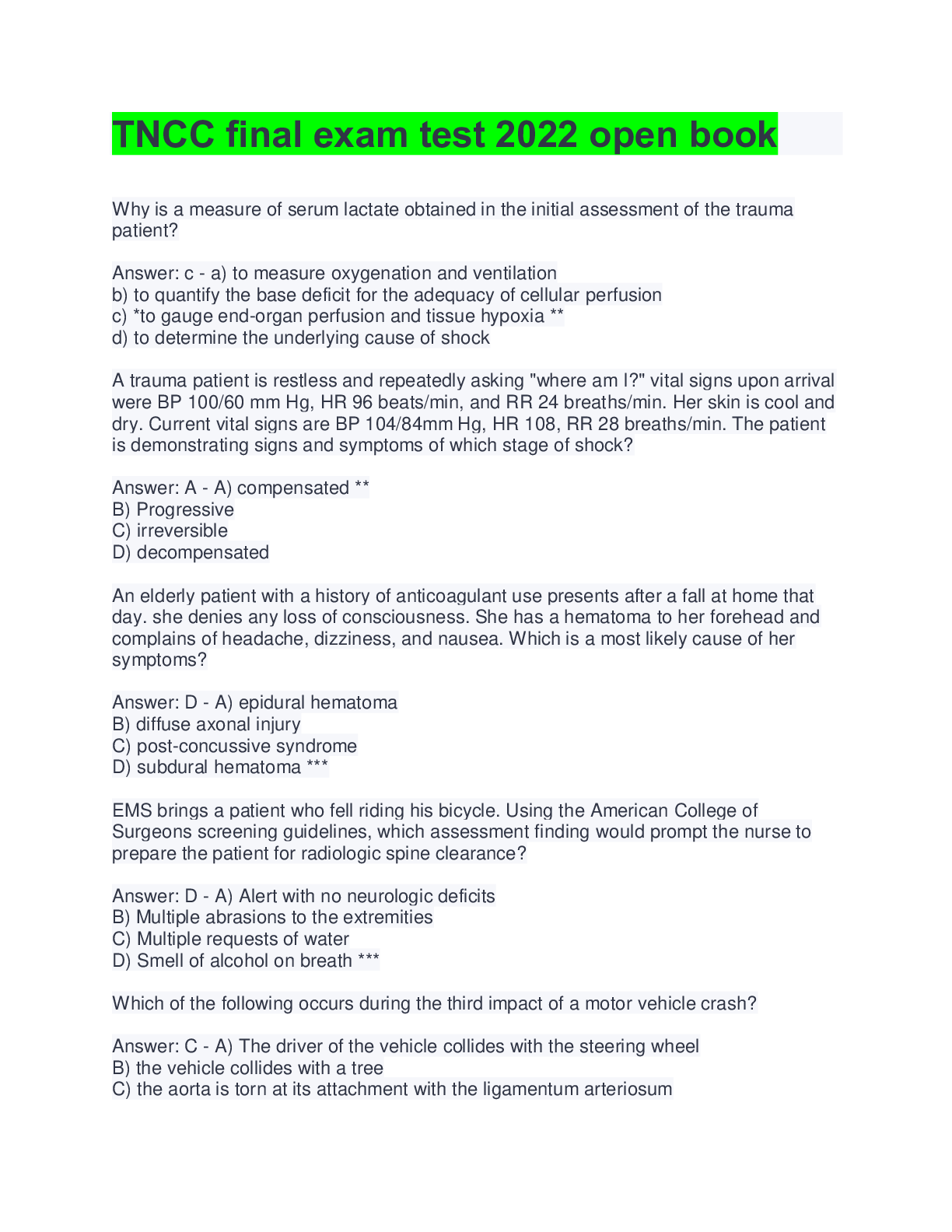



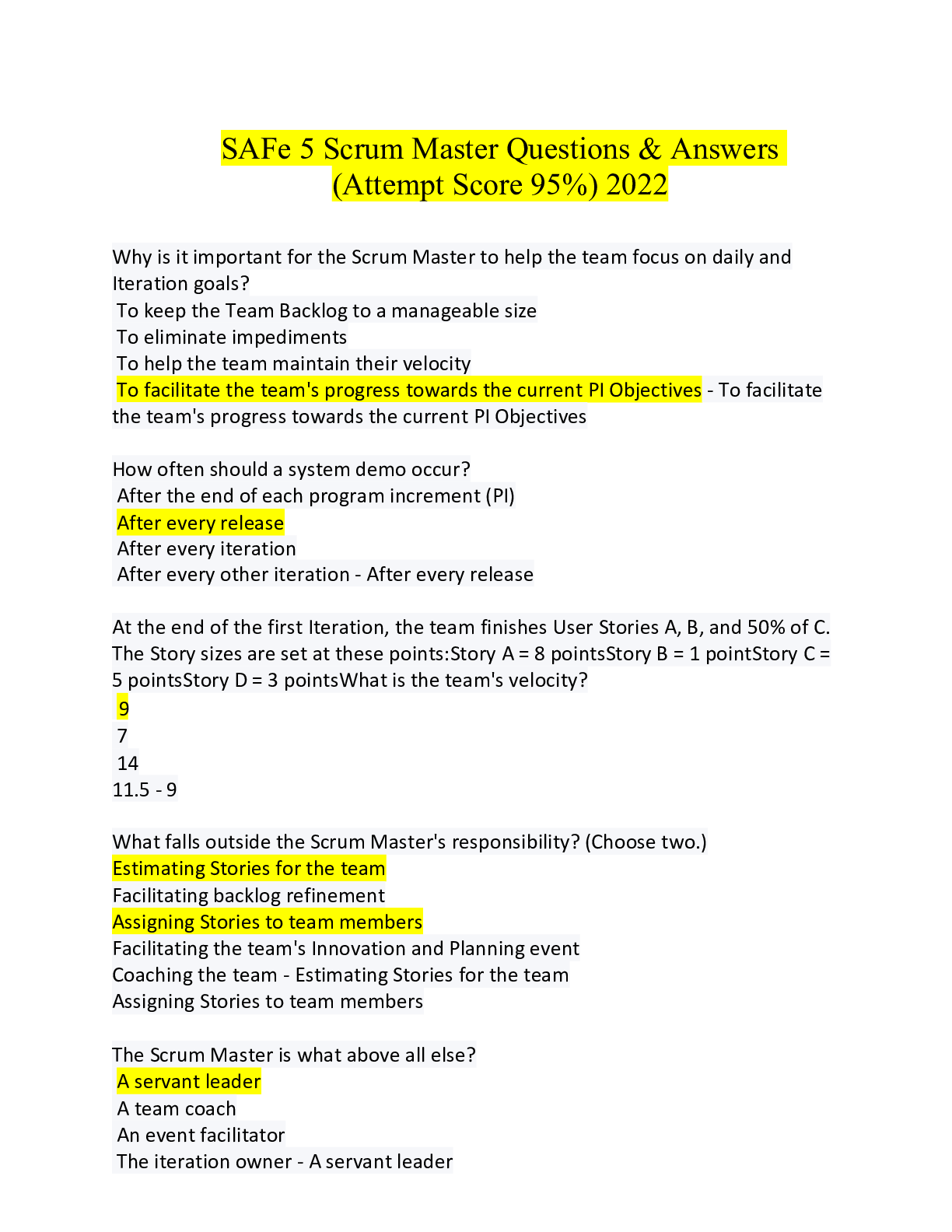
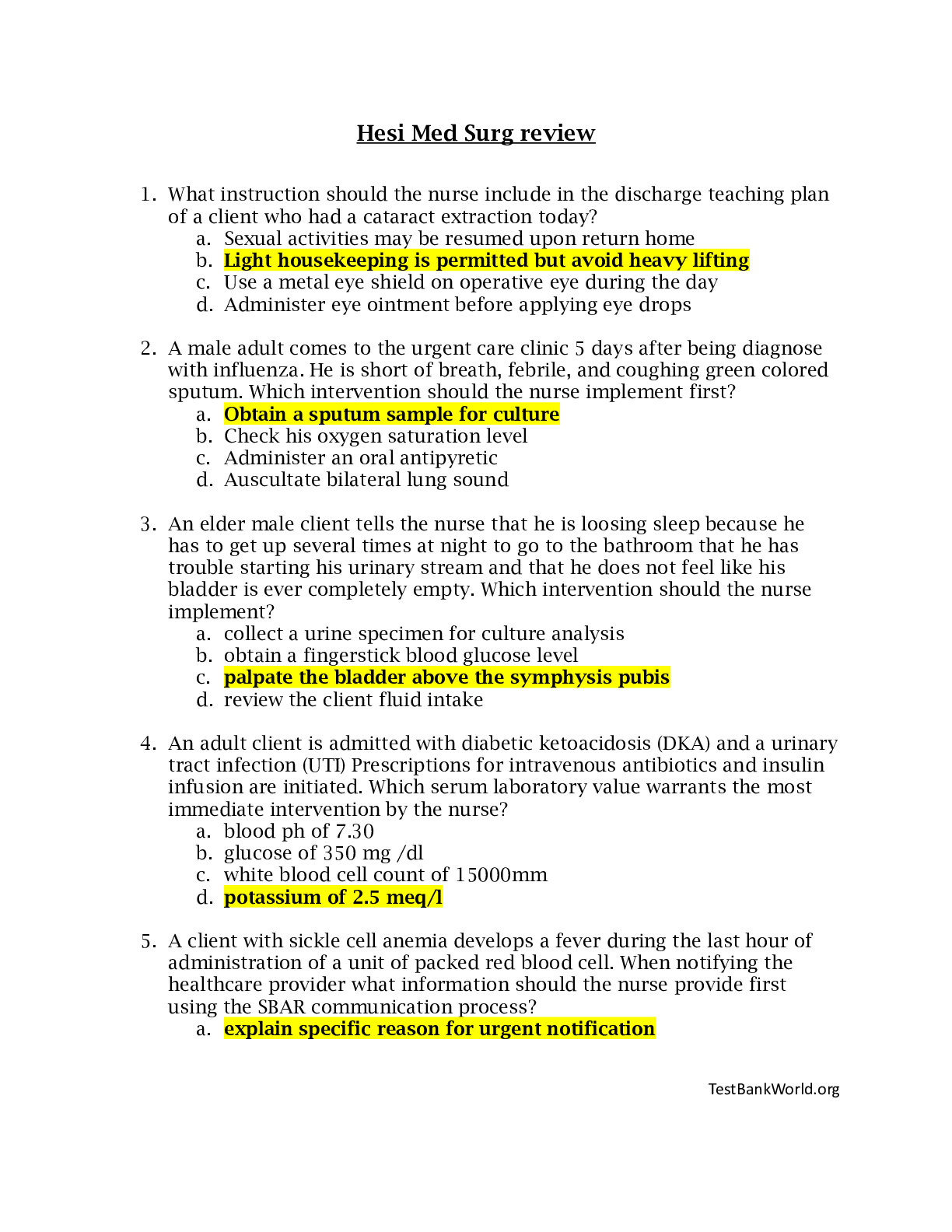


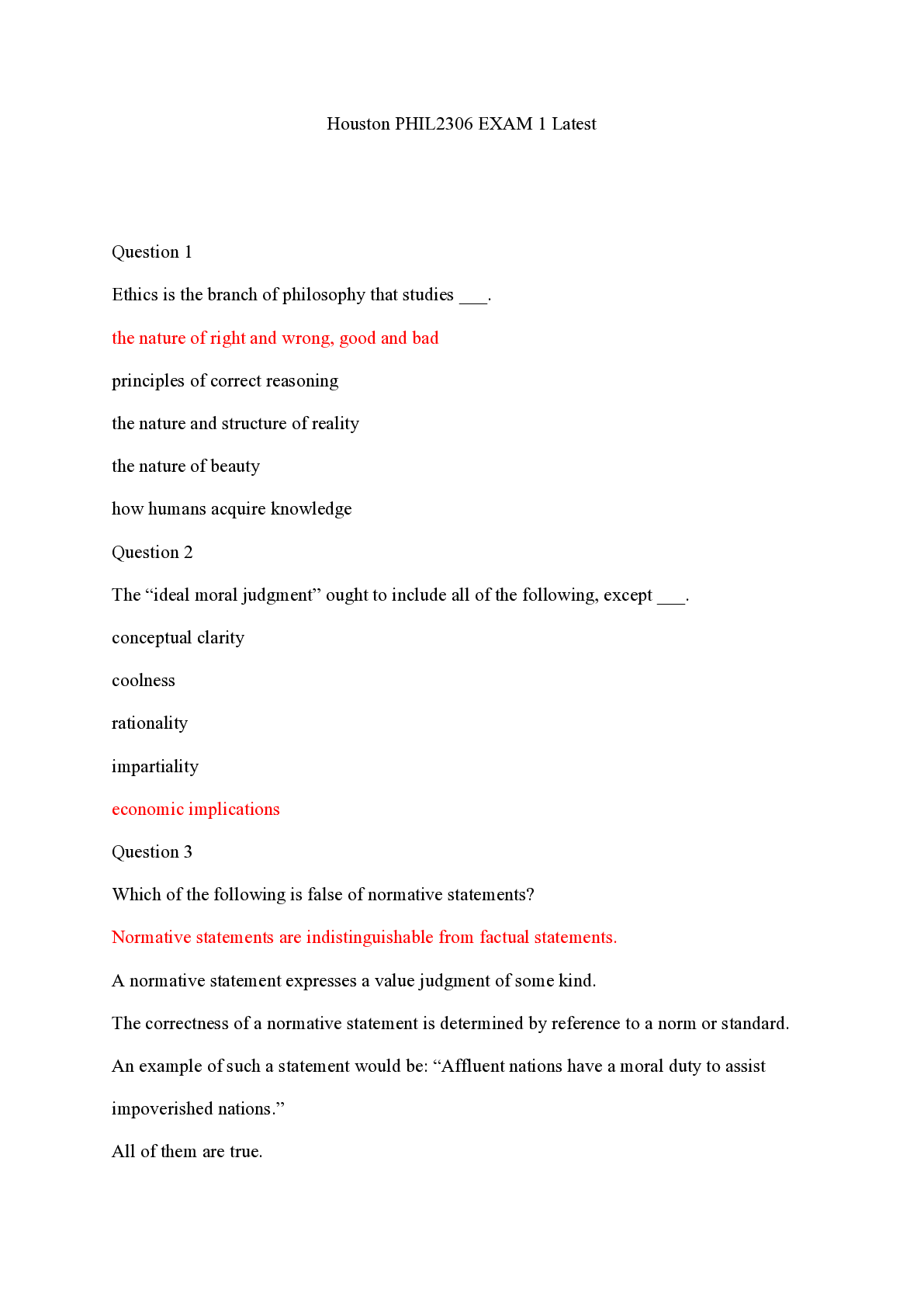

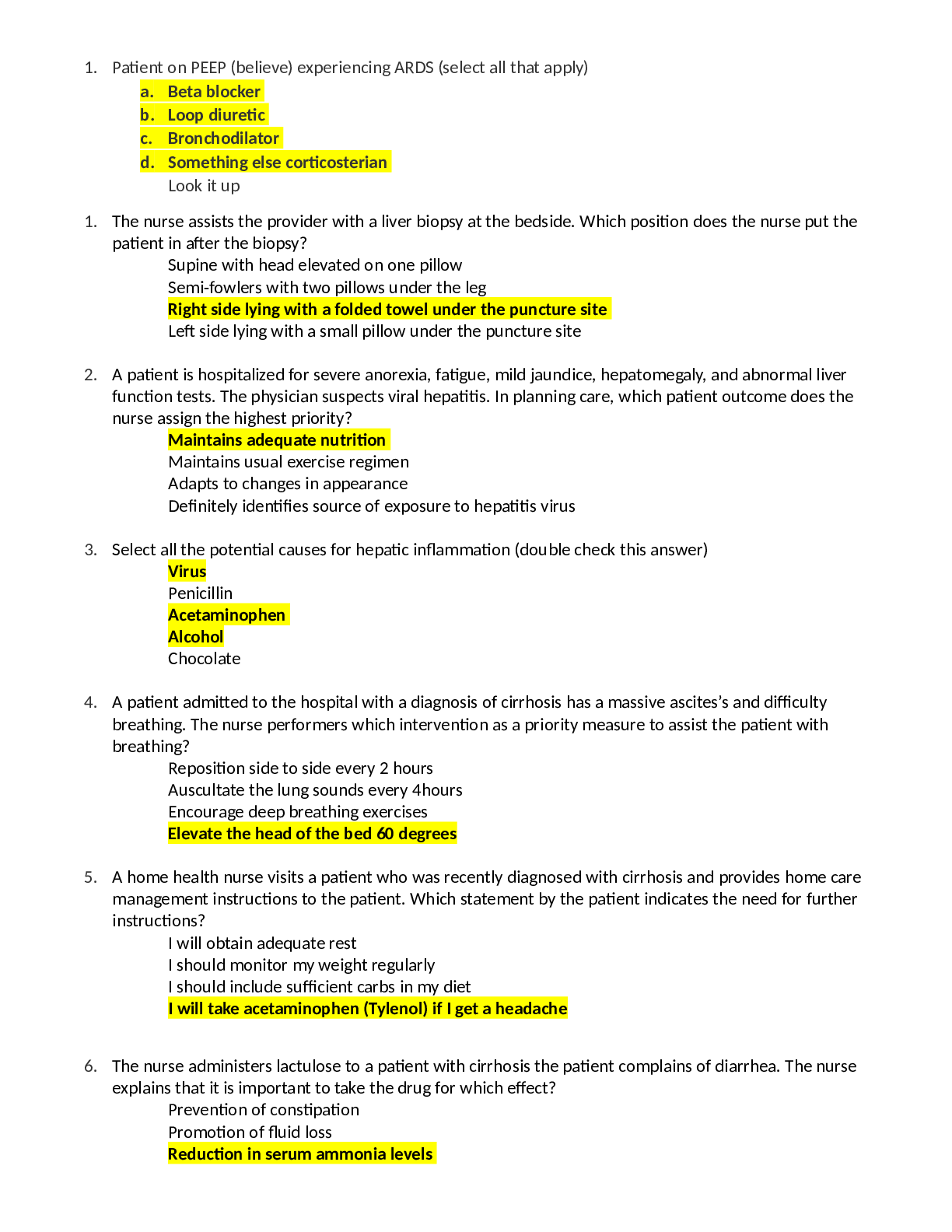
 Nutritional Principles in Nursing - Rasmussen College.png)



